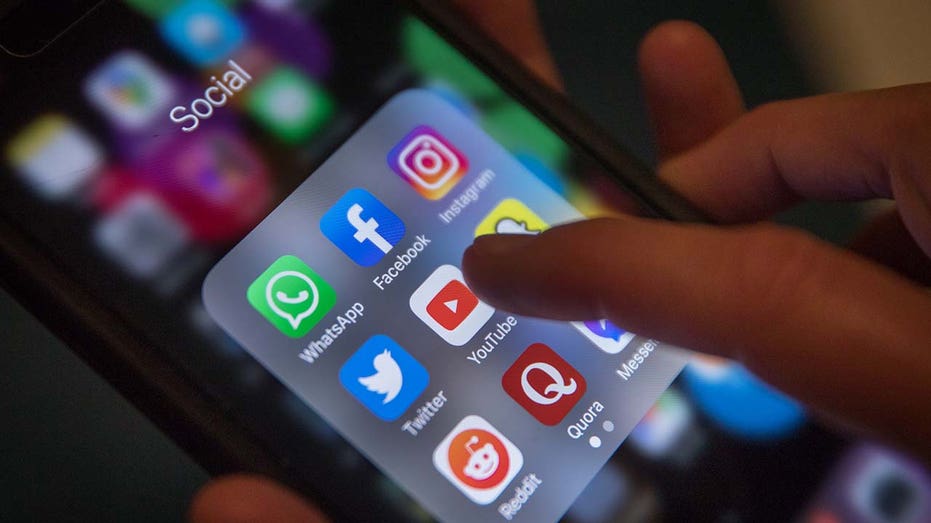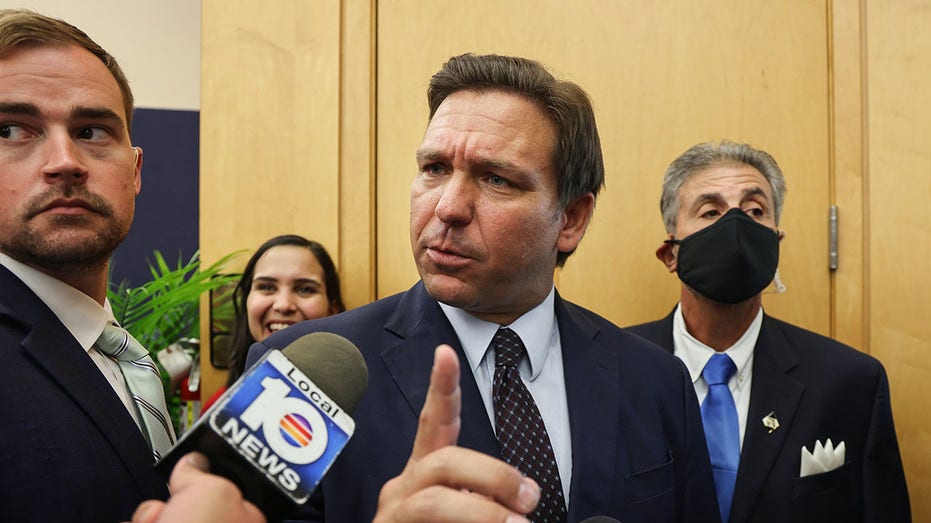Big Tech challenges Texas social media law at Supreme Court
Tech trade groups representing Facebook, Google and Twitter appeal to SCOTUS over Texas and Florida anti-censorship laws
Sen. Rick Scott: Social media works for the Biden administration
Sen. Rick Scott, R-Fla., discusses the Georgia Senate runoff election, Elon Musk's release of the Twitter files and the GOP's legislative agenda.
Big Tech is petitioning the Supreme Court to consider conflicting lower court rulings on similar anti-censorship laws in Texas and Florida, arguing the legislation denies social media platforms "editorial control over their own websites" and therefore violates the companies’ First Amendment rights.
On Thursday, NetChoice and the Computer and Communications Industry Association – two of the largest tech trade groups which represent Facebook, Google and Twitter – petitioned the Supreme Court over the United States to evaluate a 5th U.S. Circuit Court of Appeals ruling in September that upheld a Texas law known as H.B. 20.
In May, the Supreme Court, in a 5-4 decision, already granted emergency relief to NetChoice and CCIA in preventing to that law from going into effect but did not rule on the specific application of the law itself.
H.B. 20, as written, prohibits "viewpoint-based censorship by some social media platforms," asserting "each person in this state has a fundamental interest in the free exchange of ideas and information, including the freedom of others to share and receive ideas and information" and the Lone Star state has a "fundamental interest in protecting the free exchange of ideas and information."
LAWMAKERS PROPOSE BIPARTISAN LEGISLATION THAT WOULD CUT OFF TIKTOK'S ABILITY TO MAKE MONEY IN THE US
"Until the Fifth Circuit’s decision below upheld Texas House Bill 20 ("HB20"), no judicial opinion in our Nation’s history had held that the First Amendment permits government to compel websites to publish and disseminate speech against their will," the new 260-page petition read. "If allowed to stand, the Fifth Circuit’s opinion will upend settled First Amendment jurisprudence and threaten to transform speech on the Internet as we know it today."

This photo illustration shows icons for various social media apps. ( Matt Cardy / Contributor / Getty Images)
The new petition cited a conflicting ruling by the 11th Circuit of Appeals invalidating Florida’s similar anti-censorship law which found social-media companies are considered "private actors" whose "content-moderation" decisions constitute "protected exercises of editorial judgment" under the First Amendment.

The U.S. Supreme Court building is shown, May 4, 2022 in Washington. (AP Photo/Alex Brandon, File / AP Newsroom)
In September, Florida’s Attorney General Ashley Moody petitioned the Supreme Court to evaluate the ruling on the state legislation known as S.B. 7072, which prohibits "social media platform from willfully de-platforming a candidate for political office and allows the Florida Elections Commission to fine a social media platform $250,000 per day for de-platforming a candidate for statewide office and $25,000 per day for de-platforming any other candidate." That law too was blocked from going into effect.

Florida Gov. Ron DeSantis responds to a local TV reporter's question after he signed legislation to make it harder for social media companies to punish users who violate terms of service agreements, on Monday, May 24, 2021. ( Carl Juste/Miami Herald/Tribune News Service via Getty Images / Getty Images)
CLICK HERE TO READ MORE ON FOX BUSINESS
Big Tech contends the laws in Texas and Florida unconstitutionally prevent social media companies from having the freedom of discretion when curtailing hate speech and White supremacy rhetoric on their sites.
"We’re confident the U.S. Supreme Court will uphold the First Amendment by concluding that the government may not force private businesses to disseminate vile content or overrule their private editorial decisions," NetChoice counsel Chris Marchese said in a statement, according to Politico.




















